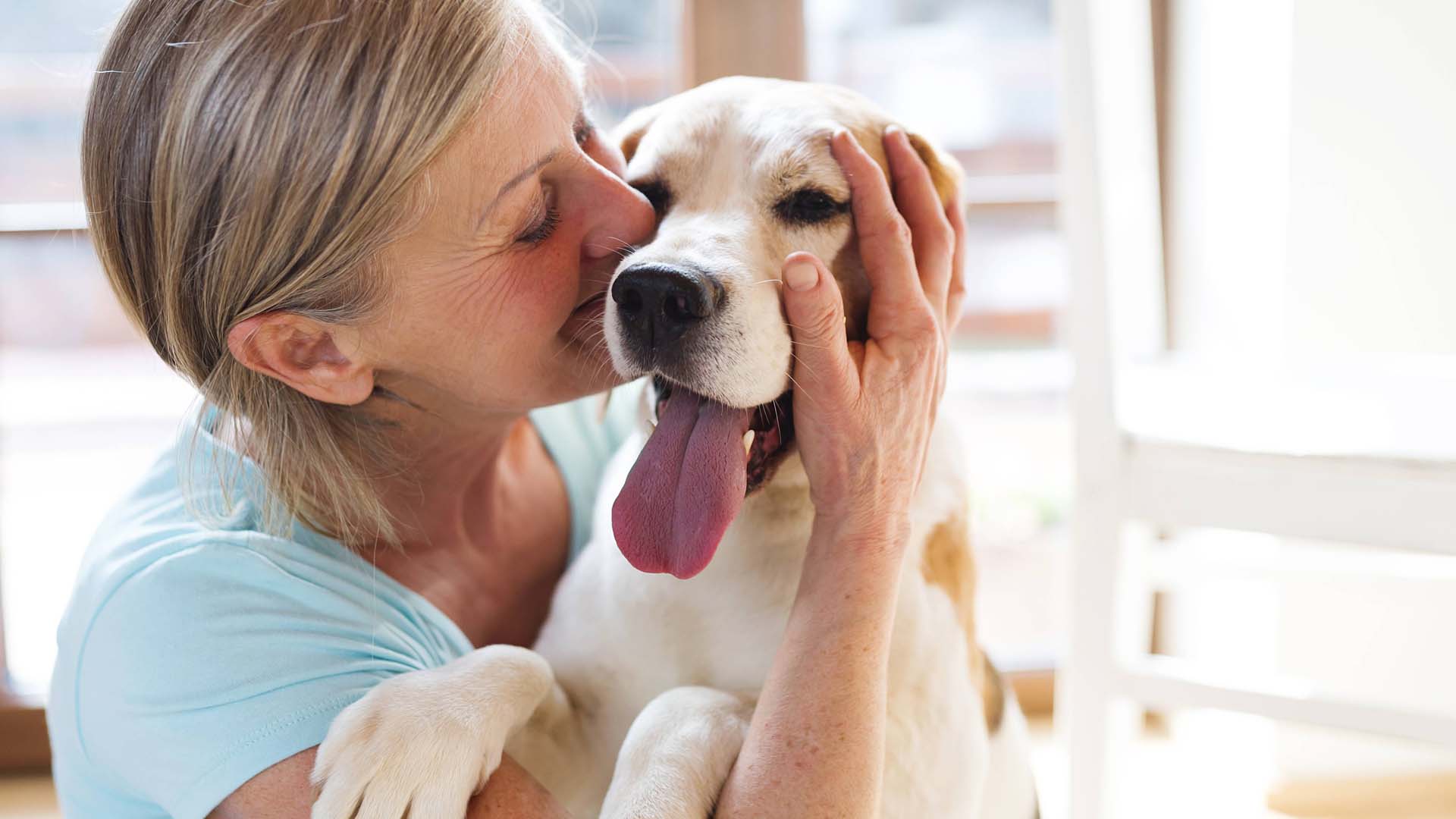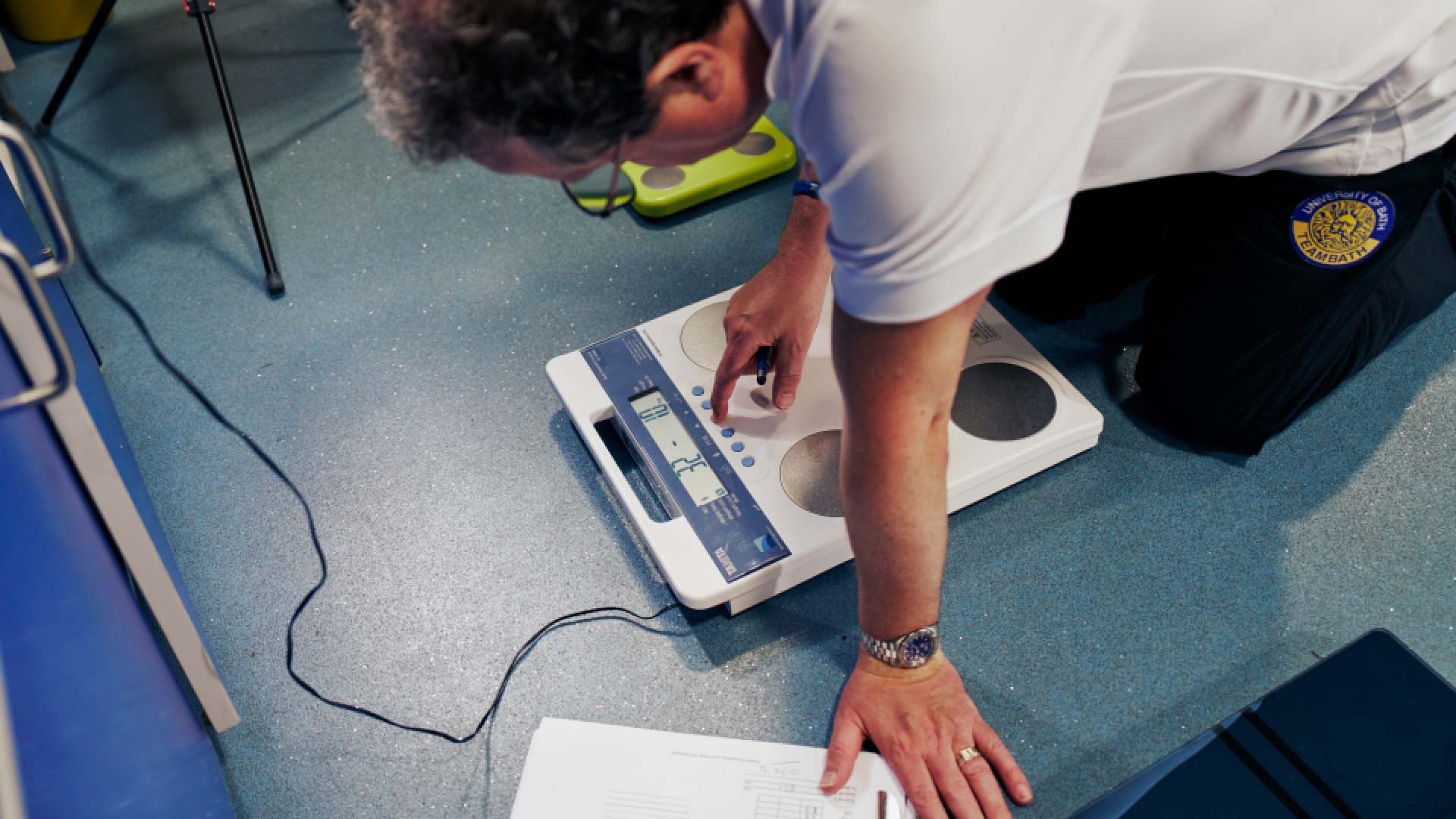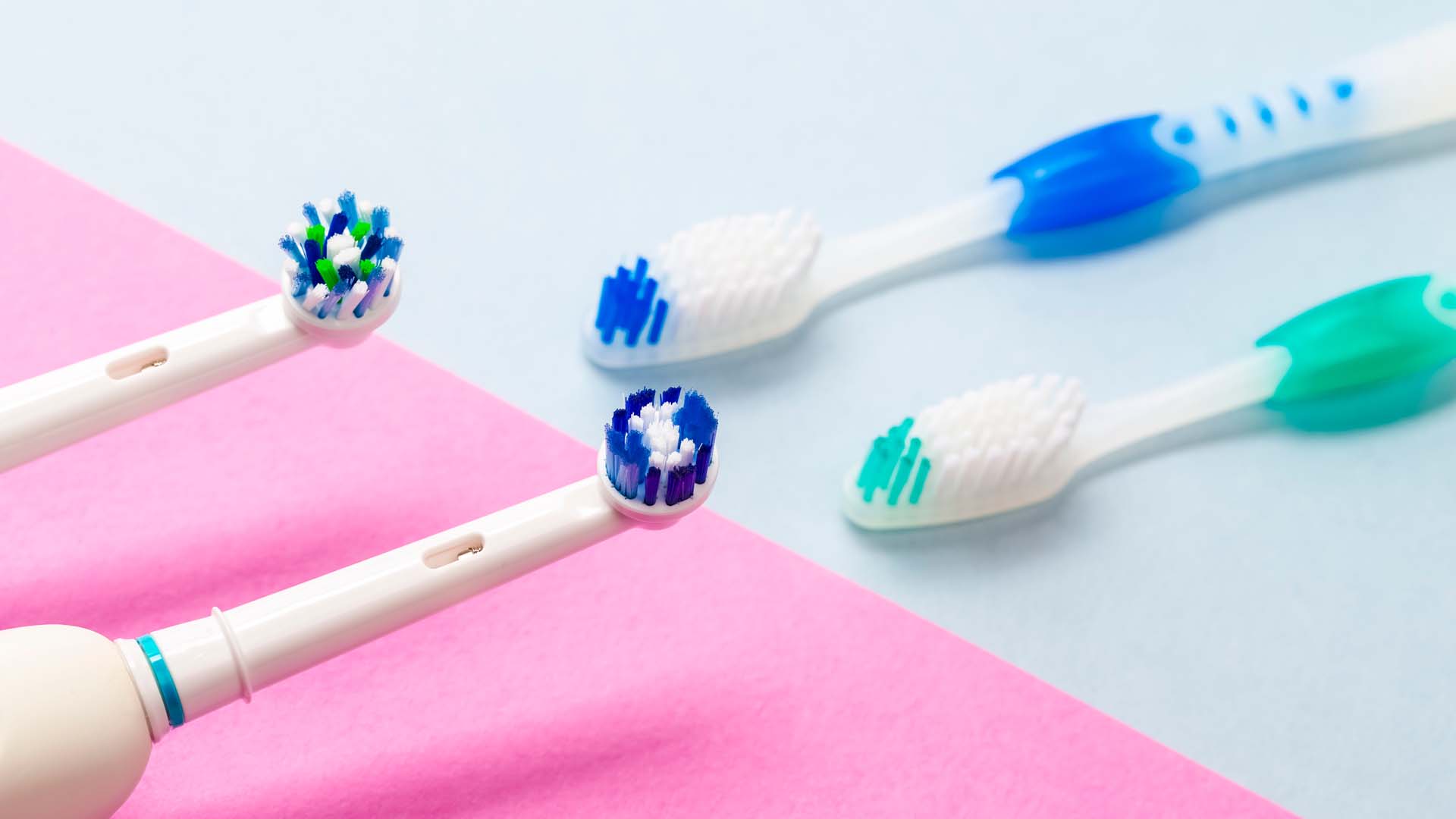Do dogs make you healthier? A world-leading gut expert thinks so
Expert Tim Spector explains why dog owners have more diverse gut bacteria, and what you can do if you don't own one.

Expert Tim Spector explains why dog owners have more diverse gut bacteria, and what you can do if you don't own one.

They never judge you, they keep you company on walks and they’re always ready with a warm, tail-wagging greeting.
There are plenty of reasons why we love our four-legged friends. And now there could be another one.
Tim Spector, world-leading expert on gut health and professor of genetic epidemiology at King’s College London, says that having a dog is good for your health and gut microbiome.
“Dog owners have more diverse gut microbes than people without dogs,” he says.
Research studies also appear to back this up, including a small study which found that babies who had pets in the house had a richer diversity of gut bacteria. However, a study published in the journal Frontiers in Cellular and Infection Microbiology, which examined the gut microbial composition and diversity of people who have pets (dogs were study participants’ most commonly owned pets) did not find significant differences in diversity of gut bacteria.
Several studies have suggested that exposure to pets in early life is linked to a lower risk of developing allergies and asthma. This could be because of the fact that your gut microbiome plays a significant role in your immune system.
Spector adds that dogs have a significantly greater positive effect on gut bacteria compared with other pets.
However, he points out that it’s difficult to measure the size and significance of this effect.
But since a more varied microbiome is considered a healthier one, this means our furry companions could be playing a part in supporting our gut health.
More specifically, research into dogs and health as we age has shown that dog owners’ gut bacteria diversity is improved particularly in older men.
A 2022 study, published in the PLOS ONE journal, looked at data, including stool samples, from 54 dog owners and 54 people who didn’t own dogs, all aged over 65.
"Dogs share their bacteria with us," says Spector.
The results showed that dog ownership can regulate the composition of gut microbiota as well as promote the growth of beneficial microbes and suppress the number of harmful bacteria.
The study also found that dog ownership had a more significant effect on the gut bacteria of men, compared to women.
The gut microbiome is the trillions of microorganisms (bacteria, viruses and fungi) that live in our digestive tract.
Scientists are still learning about our microbiome, but it’s estimated that each person has around 1,000 species of bacteria in their gut.
Do other animals, such as cats, horses, rabbits, guinea pigs, or fish help your health?
While most of the evidence relates to dogs, Spector says other animals, such as cats, can still provide some benefits. A 2021 study, published in the journal Animals, separated out dog owners and owners of other pets, and found that higher levels of several species of “friendly” bacteria were found in both groups compared with those who had no pets. But there isn't much current evidence of microbiome benefits from non-furry pets like fish, tortoises or birds.
If you haven't got a dog there are still ways you can boost your gut health.
Spector says, “This is not going to provide the same benefit for your gut as living with a dog and having close contact with that dog and its microbes,” but regular exposure to a dog could still support your gut bacteria diversity.
Here are some ideas for spending time with a dog when you don’t own one:

Spector says: “Just like any other household member, dogs share their bacteria, gained from their paws and sniffing various surfaces, with us.”
These species transfer through close contact. It might sound a little disgusting, but this can be beneficial for our health.
Just how long do you need to have owned your dog or other pet to obtain these benefits?
Spector says how length of ownership influences diversity of gut bacteria currently isn't known. So more research is needed.
However, if bacteria can be shared between pets and humans so easily, you might be wondering if there are any downsides. As with many things in life, there are risks as well as benefits.
For example, antibiotics are given to animals more than to humans, which means the microbes in a pet’s gut can become resistant to them.
If these microbes were to transfer to the owner, this could in turn increase our resistance to antibiotics.
The fascinating gut-health benefits that your four-legged friend can provide extends beyond the variety of your bacteria.
Spector says: “Stroking and cuddling pets has been shown to lower levels of the stress hormone cortisol. Reducing this is really helpful in supporting mental health.”
The companionship of a pet can also help to combat loneliness. Pet owners are 36% less likely than non-pet owners to report being lonely. As well as stress, loneliness and mental health are connected, and social isolation can lead to poorer mental wellbeing.

Mental health is closely linked to our gut health, thanks to the gut-brain axis – a two-way communication system between your gut and brain.
Reducing stress can even help to manage certain gut conditions such as IBS. Read our article on stress and IBS to learn more.
What’s more, evidence shows that having a dog can increase older owners’ willingness to exercise, because they need to walk the dog daily.
Walking the dog regularly can increase physical activity in older adults. And exercise affects gut health in many positive ways, from preventing constipation to promoting regular bowel movements and gut microbe diversity.
While having a dog is good for your health, there are also many other ways to improve your gut health.
(Hero image credit: Shutterstock/Ground Picture)
Gemma Harris has been a journalist for more than seven years and is a self-confessed health and wellbeing enthusiast, which led her to specialise in health journalism. During her career, she has worked with top editors and publications in the industry.


Get 3 months free, plus a £125 Totally Rewards Wellness Gift Card when you start a new policy by the end of 19 February 2026. T&Cs apply.
Underwritten by Bupa Insurance Limited.

Your chance to explore Ireland on board Spirit of Discovery on a cruise worth £4,317pp.


NHS England wants everyone to be using its app within three years - we look at the situation UK-wide and what to do if you haven't got a smart phone.

When it comes to tracking your body composition, are smart scales accurate enough to be useful?


The pros, the cons, with expert advice on whether to take your running indoors or out.
We are here to help you decide which wearable is right for you, a sleek fitness tracker or feature-packed smartwatch


Cleaning with an electric toothbrush is much easier, especially if you have mobility problems in your hands.



Your questions answered about what really is a good 5k time.